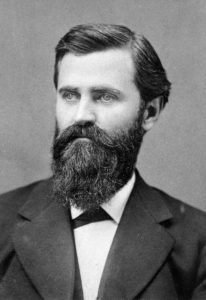This week in UWO history
March 17, 2021

March 18, 1890 — The daily morning scripture reading and prayer sessions led by President Albee came to a halt.
The Wisconsin Supreme Court ruled in the Edgerton Bible Case that religious instruction in the state’s public
schools is unconstitutional.
March 19, 1963 — The Smothers Brothers – Tom and Dick – performed a two-hour show at Albee Hall to a “large
and appreciative crowd.” The duo was known for pop and folk songs intermixed with satire.
March 20, 1914 — For the first time in eight years, an Oshkosh orator won the State Oratorical Contest held at
Milwaukee Normal. John F. Kuehnl defeated the representatives of the seven other normal schools. Accounts from
the time reported that “applause from every delegation present left no doubt but that Oshkosh would receive first
place.” The victory earned Kuehnl the right to represent Wisconsin in Interstate Oratorical Contest in Cedar Falls,
Iowa on May 1, where he would finish third from a pool of contestants from Illinois, Indiana, Iowa and Kansas.
March 21, 1982 — The Harlem Globetrotters defeated the hapless Washington Generals 66-57 before more than
3,000 fans at Kolf Sports Center.
March 22, 1916 — Fire destroyed the old Normal school building. The entire building, including the Normal’s
great library, was lost. Many works of art, fine prints and a collection of 240 Wisconsin birds, which were mounted,
were engulfed by the fire. Science teacher Harry Fling, along with other faculty and staff, ran in and out of the
building trying to save anything they could. They escaped death by jumping from the upper windows of the library.
Unfortunately, the blankets spread out to catch him ripped on impact, sending Fling head-first into a pile of books
below. Fling dislocated his shoulder and was the only injured person. The total loss was $160,000.
March 24, 1924 — Dr. A. E. Winship, a widely known educator and Journal of Education editor, spoke. Winship
said teachers’ training schools were embarking on a new path. According to Winship, the new challenge was to
teach students what was not already known about the world around them. The educator believed that it was no
longer sufficient for students to merely recite from textbooks.













